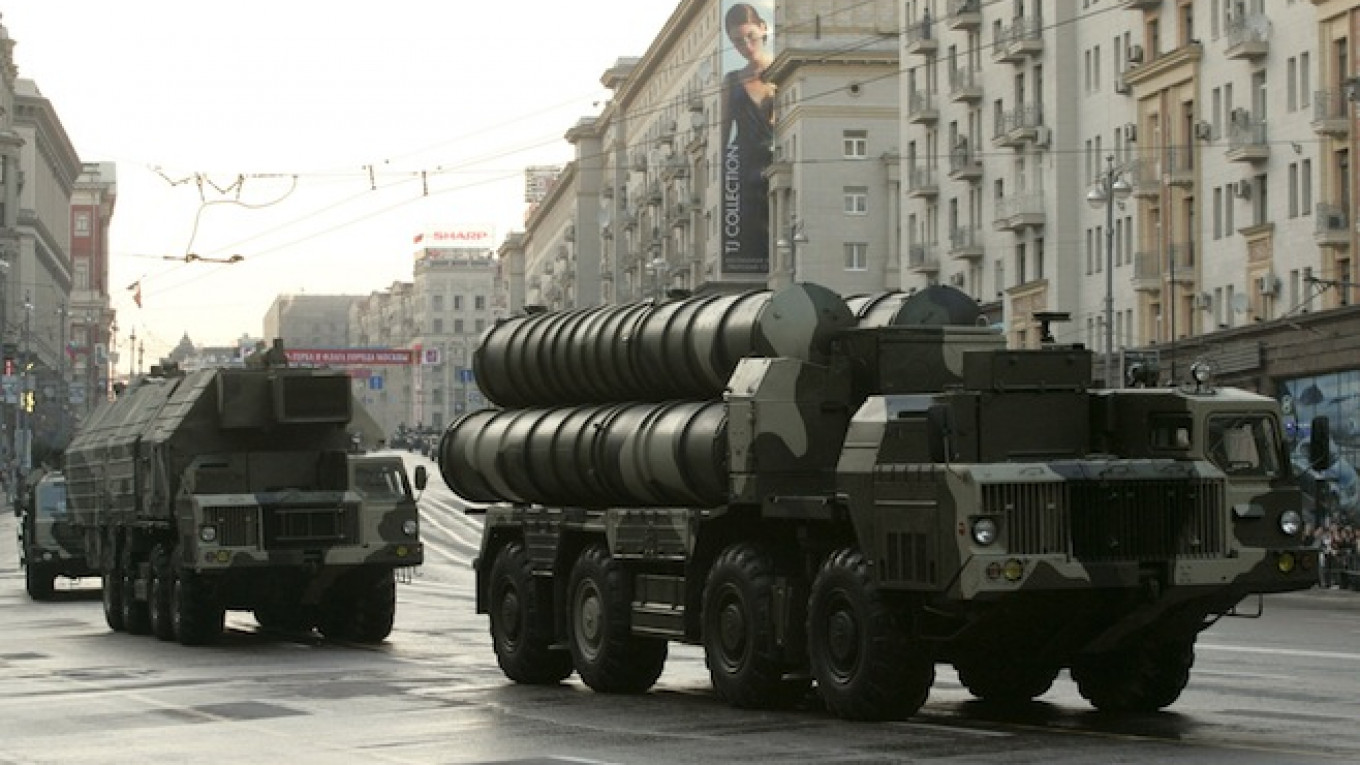HERZLIYA, Israel — The chief of Israel's air force on Wednesday played down worries voiced by some fellow officials about the possibility of Egypt acquiring advanced Russian-made air defenses.
Russian news agency TASS said in March Egypt would receive the Antey-2500 missile system, an S-300 variant, and put the value of the contract at more than a billion dollars. Neither Egypt nor Russia has formally confirmed it.
The S-300 would pose a challenge to Israel's air force.
Russia is also in talks to sell the system to Iran, to the open consternation of Israel, which has long threatened to attack its archfoe's nuclear facilities if it deems diplomatic efforts to deny Tehran the bomb to have failed.
"It [an Iranian S-300] is a very big challenge. It is a strategic problem long before it is an operational problem," air force chief Major-General Amir Eshel told reporters on the sidelines of a conference on Wednesday.
"Someone who has an S-300 feels protected and can do more aggressive things because he feels protected," he said.
But Eshel brushed off any suggestions Israel would be concerned about an Egyptian S-300, telling reporters: "Are you kidding me? We're at peace with them."
In a state of stable albeit cold peace since 1979, Israel and Egypt have in recent years stepped up security coordination against Islamist militants.
"We're all for Egypt getting anything it needs from the United States for counter-terrorism," a senior Israeli military officer said on condition of anonymity this month.
"The problem is that the S-300 has nothing to do with counter-terrorism."
A U.S. official said he had heard "muted" misgivings over the S-300 deal, but that the Israelis seemed resigned to it.
"They have a problem because here they are telling us we should give [Egypt] all this kit for Sinai, and yet they have problems with certain other weapons systems. They're aware that it's a mixed message, and they don't want to risk that," the official said on condition of anonymity.
Egypt depends on extensive U.S. military aid, which can potentially be influenced by Israel's own lobbying in Washington.
A Message from The Moscow Times:
Dear readers,
We are facing unprecedented challenges. Russia's Prosecutor General's Office has designated The Moscow Times as an "undesirable" organization, criminalizing our work and putting our staff at risk of prosecution. This follows our earlier unjust labeling as a "foreign agent."
These actions are direct attempts to silence independent journalism in Russia. The authorities claim our work "discredits the decisions of the Russian leadership." We see things differently: we strive to provide accurate, unbiased reporting on Russia.
We, the journalists of The Moscow Times, refuse to be silenced. But to continue our work, we need your help.
Your support, no matter how small, makes a world of difference. If you can, please support us monthly starting from just $2. It's quick to set up, and every contribution makes a significant impact.
By supporting The Moscow Times, you're defending open, independent journalism in the face of repression. Thank you for standing with us.
Remind me later.






